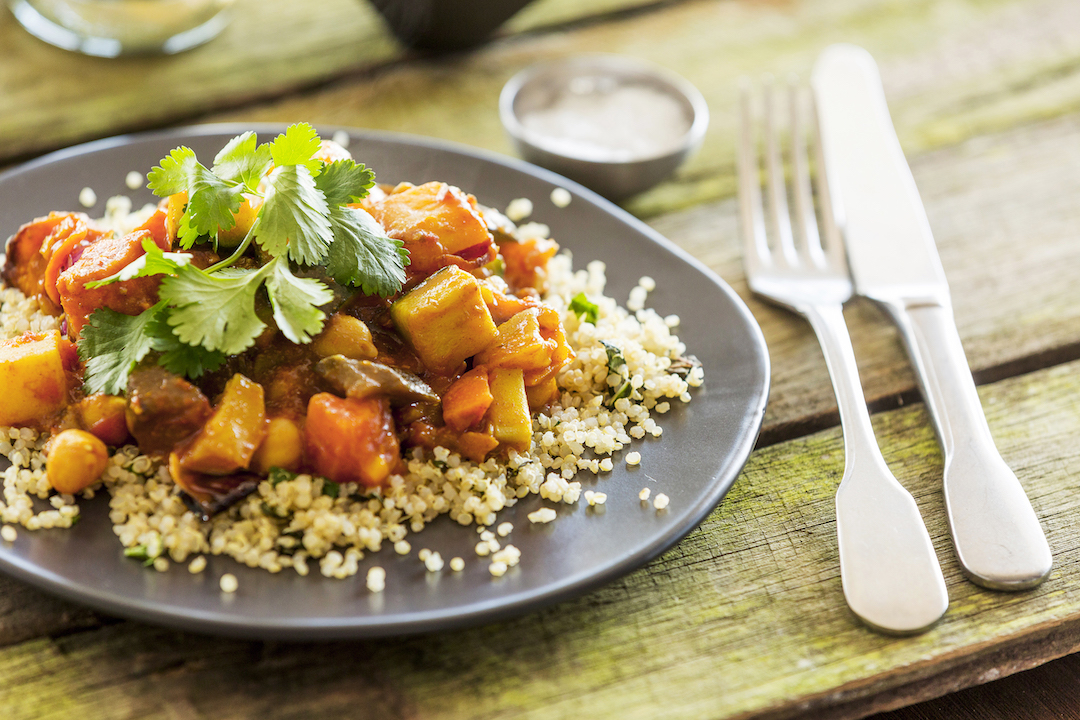Your gut microbiome & why it’s important to your health
Your gut microbiome is a vast ecosystem of microorganisms such as bacteria, fungi, yeasts, viruses and protozoans that live in your intestinal tract. These microorganisms play a key role in digesting the food you eat, breaking down toxins and making vitamins. They are also involved in processes that extend beyond your gut, including your metabolism, body weight, and immune regulation, as well as your brain functions and mood.
The medical profession now recognises that good gut health is critical to overall wellbeing. An unhealthy gut can contribute to a wide range of chronic diseases including diabetes, obesity, autoimmune conditions, depression and anxiety.
What makes for a healthy or unhealthy gut?
A healthy gut has plenty of diverse types of bacteria living in it, where competing colonies coexist in relative balance. A healthy gut has a naturally permeable wall, allowing tiny nutrient particles to flow through the lining and enter the bloodstream. A healthy gut wall also provides an effective barrier to keep the main contents of the gut (microbiota, undigested food particles, toxins) from escaping.
In some instances, the gut microbiome becomes imbalanced or disrupted, which is known as dysbiosis. Typically, one type of bacteria becomes overgrown and other bacteria are diminished as a result.
Signs of gut dysbiosis can include upset stomach, constipation, diarrhoea, bloating, gas, bad breath, food allergies and sensitivities, nausea, skin problems such as eczema or rashes, fatigue and poor concentration. These symptoms can disappear once a short term imbalance is corrected, but longer term gut dysbiosis can do real harm to the gut wall and lead to even bigger health concerns.
If the structural integrity of the gut wall does becomes compromised, then large proteins and other molecules escape from the gut into the bloodstream, which is known as leaky gut. The leakage of these substances causes the immune system to launch an inflammatory response, and it’s this inflammation that is an underlying cause of many chronic health conditions.
How our microbiome is influenced
Your gut begins to populate with bacteria from the time you are in the womb. When you are born, the types of bacteria that live and flourish in your gut are influenced by your genetics, the health of your parents, whether you are delivered vaginally or by caesarean, and if you’re breast or bottle-fed. Unfortunately, as a baby, you have little control over these things!
But the good news is that your gut microbiome is completely modifiable. During your life, many factors may influence the health and variety of bacteria you host. For example, lifestyle behaviours such as exercise, sleep, being of healthy weight and eating well can all positively affect gut health and conversely stressful events, illness and overuse of antibiotics can have negative consequences.
In terms of modifiable factors affecting the composition of bacteria living in your gut, diet is the single most important one!
How does diet affect the gut microbiome?
If you think about your gut microbiome as a garden of tiny, living creatures then it’s not so hard to understand how you must feed and fertilise them to help them grow healthy and multiply. Be careful not to poison them with foods that will cause them to wither and die. And lastly, keep those weeds in check or they will choke your lovely garden and overgrow it.
So to optimise your gut health, what foods should you consume and what should you avoid? The answers are all in my top tips below.
Top diet tips for a good gut
- Do eat plenty of fibre – it’s the number one rule for good gut health as fibre feeds the good bacteria. The term prebiotics just refers to specific fibrous particles that healthy bacteria thrive on. Australian’s don’t get enough fibre, averaging less than 20g per day (the recommended amount is 25–30g). High fibre foods include fruit, vegetables, legumes, wholegrains, nuts and seeds.
- Do target 5 serves of veg and 2 serves of fruit every day – for starters, this will help to get you to your fibre target. But of equal importance, including wholefoods and plenty of colourful plants will also provide your body with a whole array of vitamins, minerals and phytonutrients that promote wellbeing, fight free radicals and dampen inflammation.
- Do eat a diverse range of foods – lack of food diversity is becoming an increasing problem in our modern world and is causing us to lose bacterial diversity, which is bad news for our gut health. Did you know that 75% of the world’s food is generated from only 12 plants and 5 animal species? If you’re stuck in a food rut, why not try some of the nutritious options from Dietlicious? They have hundreds of healthy meals available on their menu.
- Do eat good bacteria (probiotics) – you can do this by including fermented food such as kimchi, kefir, unpasteurised sauerkraut, yoghurt and kombucha in your diet. You can also consider a probiotic supplement which is another way of introducing beneficial bacteria.
- Avoid too many ‘discretionary foods’ – energy dense and highly processed foods can damage your gut, and harmful bacteria thrive on sugar.
- Avoid additives and preservatives – certain additives such as emulsifiers and artificial sweeteners have been shown to compromise the gut lining.
- Avoid excessive antibiotics – if possible, as antibiotics can damage the gut and kill off the good bacteria.
Once you’ve got your good gut health diet in place, the important thing is to keep it up. Scientific studies have now shown that while gut health is modifiable with the right diet, you need to maintain that healthy eating every day to preserve the improvements in your gut microbiome.
